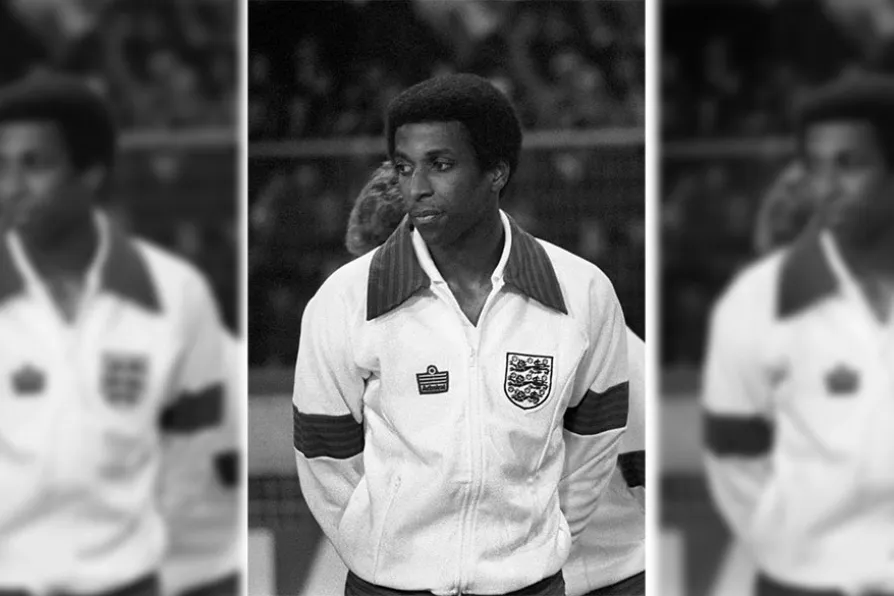
 England's Viv Anderson, on his debut, the first black player to represent England in a full international, November 1978
England's Viv Anderson, on his debut, the first black player to represent England in a full international, November 1978
THE shirt worn by Viv Anderson, the man recognised as the first black footballer to win a full cap for the England men’s national team, is being sold today for at least £28,000 by auctioneers Graham Budd at the Old Trafford cricket ground.
Lot 39 of “The Viv Anderson Collection,” who won a league title and back-to-back European Cups at Nottingham Forest before playing for Arsenal, Manchester United and Sheffield Wednesday, is part of a vast array of shirts and memorabilia being sold by the 68-year-old as he seeks to raise funds for his children.
The long-sleeved Admiral shirt was not one of the most revered designs in the history of the England football team having never been worn in a major tournament. However, on November 29, 1978, the then 22-year-old Anderson went down in history as the figurehead for a group of black footballers blazing a trail in the English game in the late 1970s.

Johnny Sexton appointed as an assistant coach













